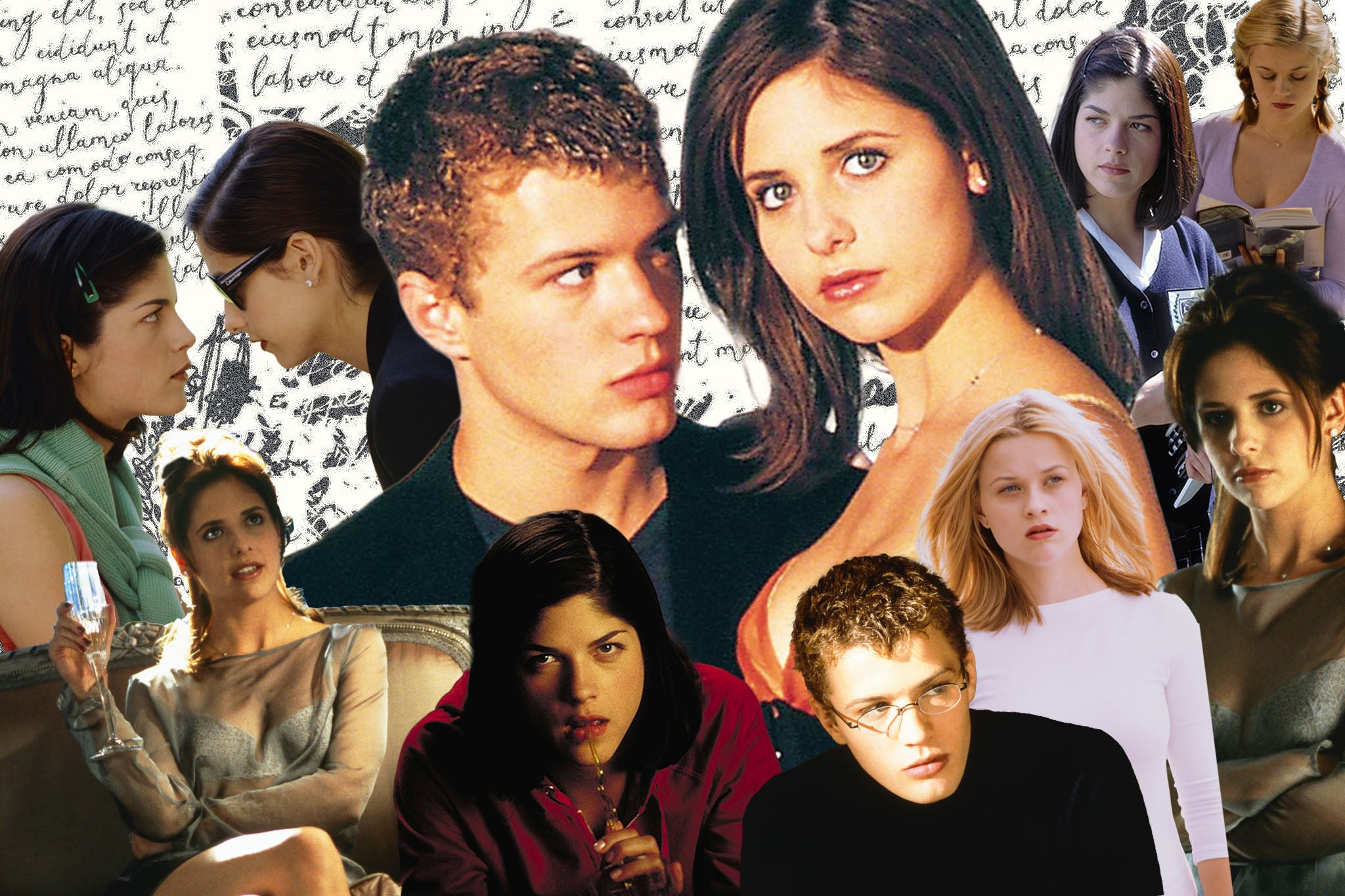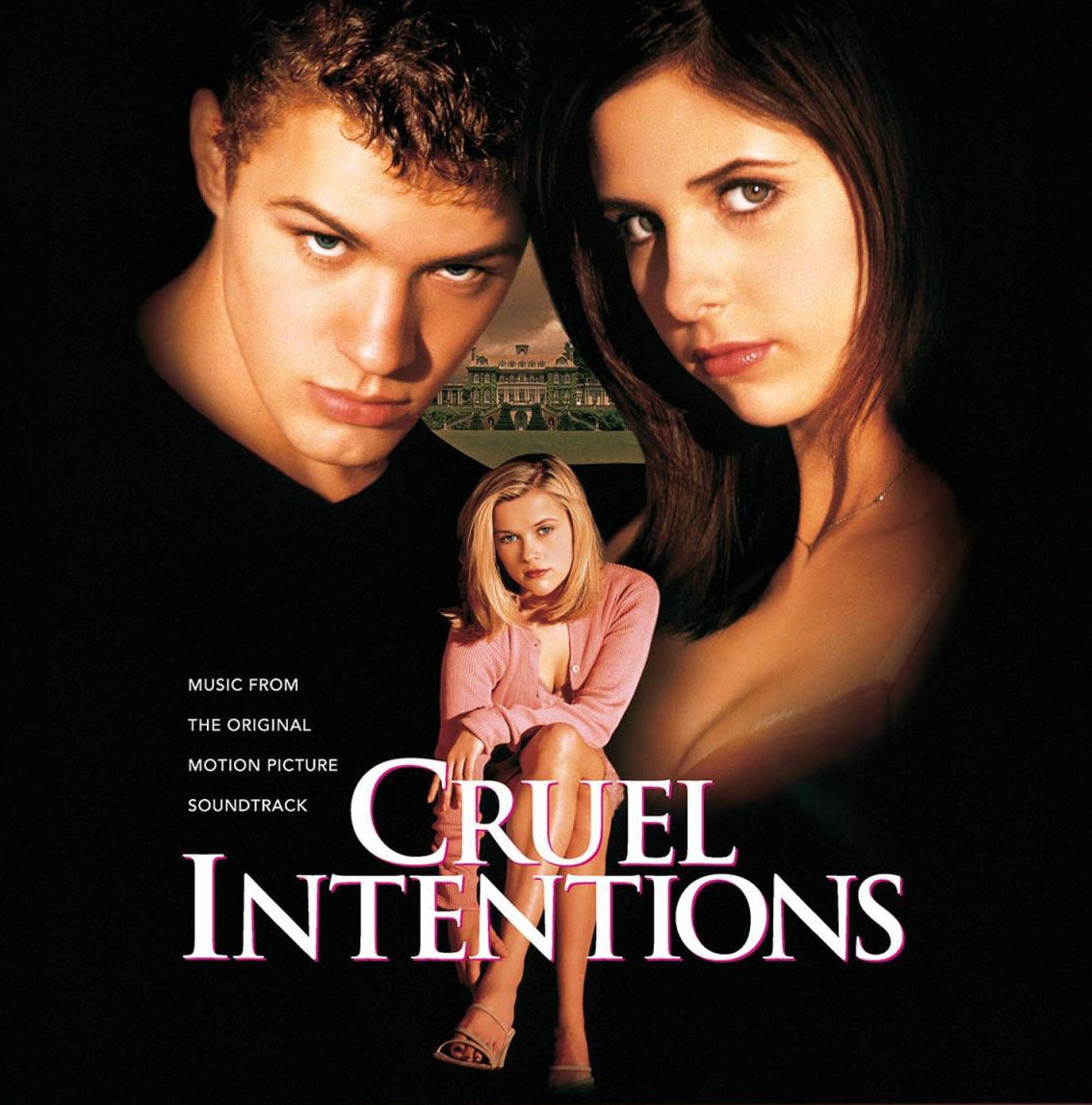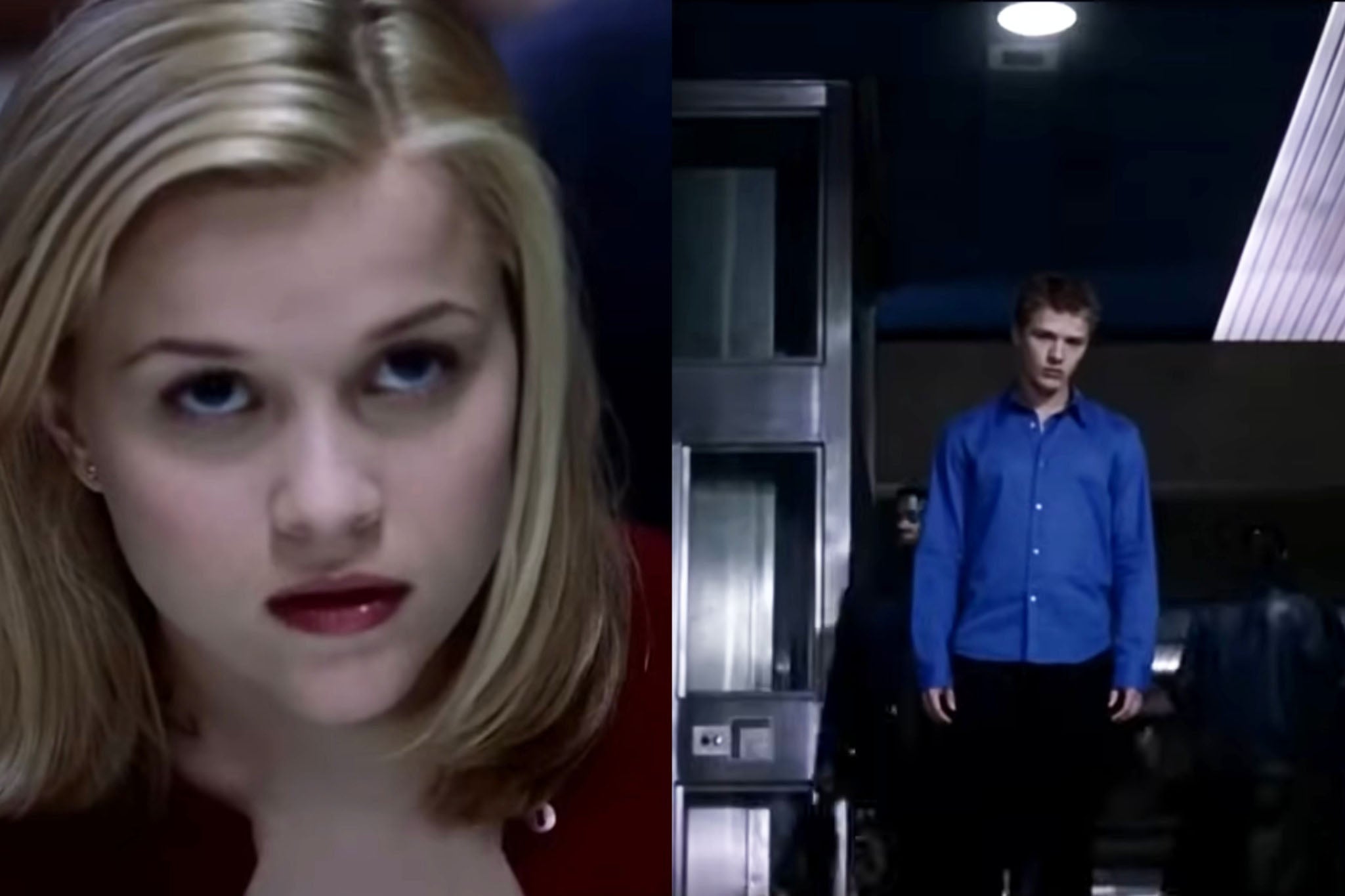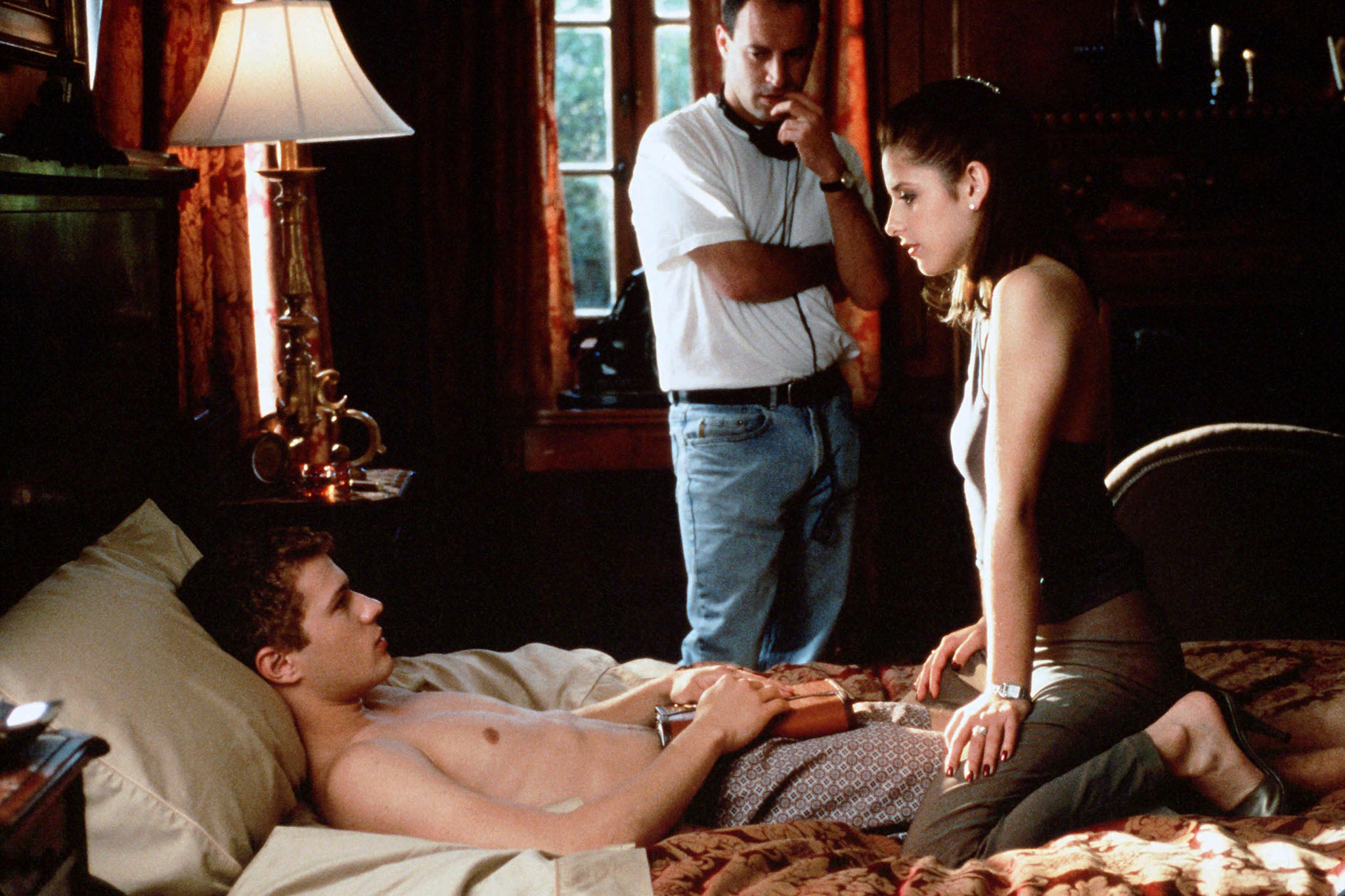Cruel Intentions at 25: Placebo, The Verve and the making of the greatest soundtrack in teen movie history
With its jukebox of late-Nineties alt-pop – including Blur, Counting Crows and The Verve’s seminal ‘Bittersweet Symphony’ – the soundtrack for the salacious 1999 drama works as a time capsule of an era, and spoke to a generation of viewers coming of age. Kate Solomon revisits its hits and speaks to its makers

Your support helps us to tell the story
From reproductive rights to climate change to Big Tech, The Independent is on the ground when the story is developing. Whether it's investigating the financials of Elon Musk's pro-Trump PAC or producing our latest documentary, 'The A Word', which shines a light on the American women fighting for reproductive rights, we know how important it is to parse out the facts from the messaging.
At such a critical moment in US history, we need reporters on the ground. Your donation allows us to keep sending journalists to speak to both sides of the story.
The Independent is trusted by Americans across the entire political spectrum. And unlike many other quality news outlets, we choose not to lock Americans out of our reporting and analysis with paywalls. We believe quality journalism should be available to everyone, paid for by those who can afford it.
Your support makes all the difference.A moody piano. A bass chord that thuds insistently under a rolling motif that hesitates, lingers, then speeds to catch itself up. “I am ready, I am ready, I am…” sings a deep, slightly strained vocal. Hoards of elder millennials swoon. This is “Colorblind” by Counting Crows, a track eternally linked to a scene in the salacious 1999 teen movie Cruel Intentions, in which Ryan Phillippe finally declares his love for Reese Witherspoon at the top of an airport escalator. It’s romantic, but with a side of dread. This could be the film’s happy ending, it says… If only the film didn’t have half an hour more to go.
The Cruel Intentions soundtrack is chock full of songs that encapsulate the era into which it was released, with “Colorblind” one of its three major musical tentpoles. It only came to be on the soundtrack by accident. With the film basically in the can and deadlines looming, filmmaker Roger Kumble had his heart set on “To Sheila” by The Smashing Pumpkins for his film’s big romantic denouement – a very expensive song, but one he thought was worth it. After weeks of keeping Kumble waiting, Billy Corgan finally decided it was a no. Kumble had little time to find a replacement that worked. But, in a glorious moment of Hollywood serendipity, the right song found him.
“All I remember,” he tells me today, “is someone saying, ‘Hey, Counting Crows are recording in this house in the Hollywood Hills, do I want to go over?’ I was like, hell yeah!” Frontman Adam Duritz had written an emotional piano ballad just days before: it was spooky how well it fit with the scene. “That song is associated with the film now. That piano is so beautiful and really sets the tone.”
Cruel Intentions, which was released 25 years ago today, is a contemporary update of the 1782 novel Les Liaisons dangereuses, and transposes a tale of sex and scandal and socialites torturing their peers for sport from French high society to a Manhattan prep school. This was a movie for teens who’d aged out of the day-glo world of Clueless and 10 Things I Hate About You and into adolescence’s sultry underbelly. The deplorable Sebastian (Phillippe) strolls caddishly through life, leaving a trail of heartbroken and deflowered women in his wake. His stepsister, Kathryn (Sarah Michelle Gellar), offers him a sexual wager to corrupt the lily-white headmaster’s daughter. The terms of the deal include an immortal pledge from Kathryn as she reclines across a four-poster bed: “You can put it anywhere.”
The headmaster’s daughter is Annette (Witherspoon, Phillippe’s real-life girlfriend at the time), the type of girl to wear a promise ring and write op-eds in teen magazines about waiting until marriage. Collateral damage in Sebastian and Kathryn’s twisted plan includes a closeted football star (Eric Mabius), an unbearably naive student (Selma Blair), a cello teacher (Sean Patrick Thomas), a therapist (Swoosie Kurtz), the therapist’s daughter (Tara Reid), and, well, just about everyone up to and including a tightly wound socialite played perfectly by Christine Baranski.
I wasn’t enamoured with the execution [of the film] so I decided to go to bed halfway through. I just remember saying, ‘OK, here’s the deal: Sebastian has to die in the end. And Kathryn has to be publicly shamed and ostracised. Otherwise, we don’t do it’
Under it all runs a jukebox of emotional, late-Nineties alt-pop. Blur, Fatboy Slim, Placebo, The Verve and even Skunk Anansie get a look in, a time capsule for the fading chemtrails of Britpop and the looming spectre of a new millennium. It veers from the party-pop of “Praise You” to the soaring sorrow of “Bittersweet Symphony”. It takes Placebo, a band that was essentially unknown to American audiences in 1999, and gives them almost two minutes of screen time at the top of the film. It puts Aimee Mann next to Faithless, like a mixtape concocted by someone really going through it. Think of it as a collection of songs perfectly timed to embed itself in a generation’s developing neural pathways – it’s no wonder an intensely nostalgic musical adaptation of the film has just hit London’s West End, which adds in other Nineties hits such as No Doubt’s “Just A Girl” and, for some reason, Christina Aguilera’s “Genie in a Bottle”.
Cruel Intentions did pretty well commercially, entering the contemporary zeitgeist thanks in no small part to the scene where Gellar and Blair make out in a park (to the strains of Blur’s “Coffee and TV”). If you watch it in 2024, free from the chokehold of teenage hormones, you’ll find that it’s clearly not the greatest film ever made. But it’s easy to see why it spoke to those of us coming of age in 1999, young people desperate to be adults and fooling ourselves into thinking we could exert any control over a chaotic world. And, of course, we were unbearably horny. That scene on the escalators provokes a visceral adolescent yearning in me even now.
Cruel Intentions’ soundtrack typifies the way Nineties teen movies used music. Songs fade in and out to add narrative heft, like a radio playing in the background of your life. Sebastian drives to therapy alongside the steady, nasal whine of Placebo’s “Every You Every Me”, the lyrics of which essentially tell the story of the entire film. Annette speeds away from everything at the end of the movie as The Verve and an orchestra’s worth of strings declare the whole thing a bittersweet symphony, that’s life. Sebastian lures Annette to his aunt’s swimming pool by blasting opera over the house PA (they’re rich, go with it) – then switches it to The Cardigans’ “Lovefool” to get her to stay. Invoking Baz Luhrmann’s 1996 Romeo + Juliet to win a girl over is the most Nineties bit of musical flirting imaginable.

But all of this didn’t come together easily. Cruel Intentions was Kumble’s first feature film. As well as directing, he wrote the script and made the rookie mistake of writing to the music that fit his vision. “I wouldn’t recommend doing that ever again,” he says, a little wearily. He knew he wanted “Bittersweet Symphony” for the ending and had written Annette’s final drive with the beats and swoops of that song in mind: it was, in his opinion, a non-negotiable. But it was expensive. “Bittersweet Symphony” is based on a Rolling Stones sample – until 2019, when they handed the rights back over to Richard Ashcroft and co, they took all royalties from the song.

Watch Apple TV+ free for 7 days
New subscribers only. £8.99/mo. after free trial. Plan auto-renews until cancelled

Watch Apple TV+ free for 7 days
New subscribers only. £8.99/mo. after free trial. Plan auto-renews until cancelled
With most of the music budget eaten up by one song, the sound of the rest of the film was up for grabs. Everyone had an opinion. At first, the production team negotiated a deal to populate the soundtrack with artists from Arista Records. “I was like, ‘oh great, I’m going to meet Clive Davis, cool’,” Kumble says. “But they kept sending me stuff, and I was like, this is not right. This is not my sensibility.”
The inexperienced Kumble was easily led by the production veterans above him, agreeing to things left, right and centre. Eventually, though, he had to put his foot down. “Finally, at some point, we were like, ‘We’re on the wrong label.’ I didn’t know what record label we needed, I just knew the type of stuff I liked.”
Kumble grew up in New York listening to the alternative radio station WLIR. His love of late Seventies and Eighties new wave evolved into love of Elvis Costello and The Smiths, then, through the Nineties, Blur, Oasis, Pulp and The Stone Roses. Britpop never really took off in the US, but it found a home in at least one New York teenager’s heart. “I never got out of Britain, I don’t know why,” Kumble jokes. When a Cruel Intentions colleague suggested they back out of the Arista deal and make a new deal with Virgin Records, which had on their roster more of the artists Kumble liked, he was “like a pig in s***”.

This trial-and-error approach was echoed in the musical score, too. John Ottman – who would go on to win an Oscar for editing the Queen biopic Bohemian Rhapsody – was tasked with writing the incidental music for the film. But, again, something wasn’t working. “The movie was not testing well [with preview audiences],” Kumble remembers. “The studio was like, we want to try a different way to go with the score. Ed Shearmur’s score was a more modern sound.” Shearmur’s work encompasses both the dark danger of rich kids gone wild with sexual power and the inherent silliness of it all – there’s an air of The Pink Panther about it. Big, slimy deals are afoot, but a knowing sense of ridiculousness lightens the mood. “And John Ottman has an Academy Award now,” Kumble adds, “so I’m not too worried about him.”
Film soundtracks were big business in the Nineties; they were a huge part of music discovery for a generation who’d only just got their hands on file-sharing and otherwise relied on radio, liner notes and mixtapes to find their new favourite bands. For the British groups on the soundtrack, Cruel Intentions was a way to break into the lucrative American market.
Placebo frontman Brian Molko remembers being slightly indifferent to the film. “David Lynch and Jim Jarmusch are more my... scene,” he says carefully. Placebo were sent a cut of Cruel Intentions before the music was added and, having studied Les Liaisons dangereuses as a drama student, Molko was intrigued – but not enough to stay awake to watch the whole thing.
“We were on tour and I was watching it with my bandmate Stefan,” he recalls. “I wasn’t enamoured with the execution so I decided to go to bed halfway through. I just remember saying to Stefan, ‘OK, here’s the deal: [Sebastian] has to die in the end. And [Kathryn] has to be publicly shamed and ostracised. Otherwise, we don’t do it. If they’ve made it a Hollywood happy ending, we’re not doing it’.” When he woke up the next day, Molko asked – well, does he die? “Stefan said yes and I almost went, ‘Oh s***, now we have to do this teen movie’.”

Initial reticence aside, Molko looks back on Cruel Intentions with a certain fondness. “I don’t regret it at all,” he says. “It was the first time that we got a song in the opening credits of a film. I don’t think we had exposure like that again until we covered ‘Running Up That Hill’ and then that ended up in almost every teen drama in America.”
Kumble had no sense that he was shaping the music tastes of hundreds of kids across the ocean. He’d merely populated Cruel Intentions with songs that he’d vibed with, like a lovingly curated mixtape that just happens to come with a very horny film. Perhaps that’s the reason the soundtrack proved pivotal to so many: it was someone reaching out across the void and saying, hey, look, here’s a cool song I like. And maybe you’ll like it too.
Join our commenting forum
Join thought-provoking conversations, follow other Independent readers and see their replies
Comments